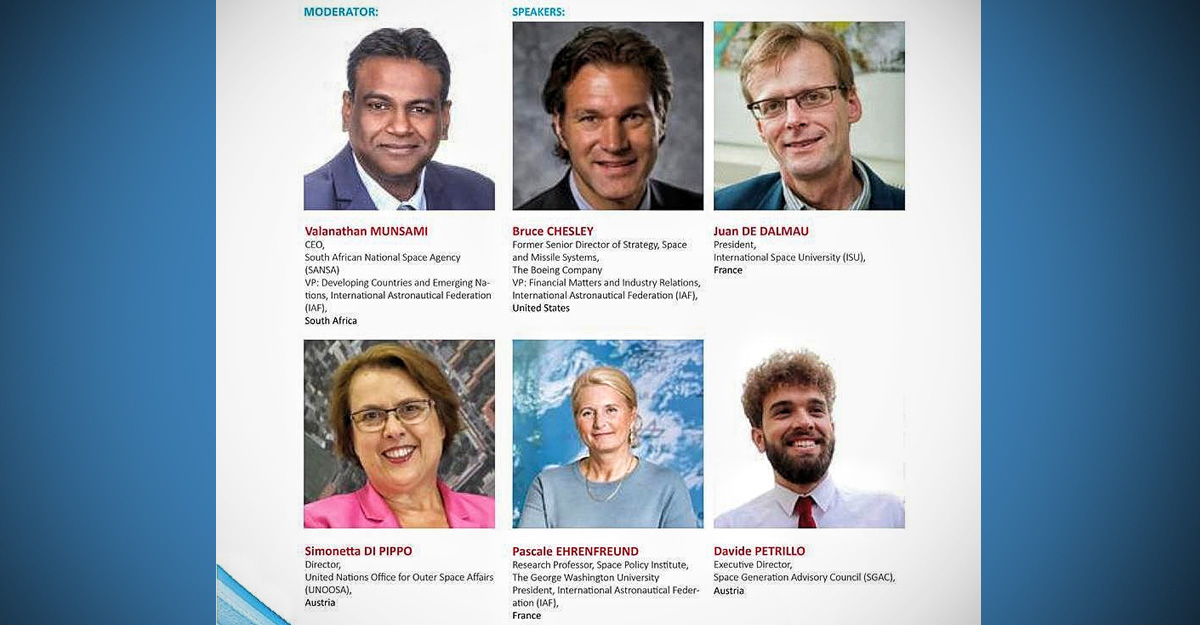
February 8, 2021
For the first time in its 71 year history, the International Astronautical Congress (AIC 2020) took place virtually, with organisations and governments involved in the space sector joining online sessions while socially-distanced all over the globe. Now more than ever, the world relies on space data for managing the pandemic, and lockdowns have negatively impacted the movement of critical personnel and supply chains in the space sector.

SANSA CEO, Val Munsami, discussed these and the many other ways COVID-19 has affected the global space sector. Munsami organised and moderated a special session as the International Astronautical Federation’s Vice President of Developing Countries and Emerging Nations, where he was joined by speakers representing the global space organisations and industry.
Juan De Dalmau, the president of the International Space University, spoke about higher education in the space sector and the reactions to the challenges of COVID-19. Dalmau sees the pandemic as an opportunity taken up by young people who want to shape a more progressive and sustainable future for the planet.
“Young people want to make a difference to help the United Nations with the Sustainable Development Goals,” Dalmau said. “Young people want to make a difference with the climate crisis and they want to make a difference before the next pandemic.”
For Dalmau, the global space sector can help promising young people with the tools they need to work in transdisciplinary efforts to create sustainable solutions to fight the current and future health crisis.
For Pascale Ehrenfreund, President of the IAF, the space sector is well placed to tackle the global health crisis and that, in turn, the COVID-19 pandemic will have long lasting effects on the sector. “Many technologies that are used in response to the corona crisis are likely to shape society in the long term,” she said. Ehrenfreund mentioned a PriceWaterhouseCoopers analysis from April 2020 that shows the space sector has had growing demand for earth observations and navigation technologies as satellite imagery enables authorities and organisations like SANSA to monitor the effects of the pandemic from space.
READ ALSO: Earth Observation Support Tools for Socio-economic Needs During the National Lockdown
Simonetta Di Pippo, the director of the United Nations Office for Outer Space Affairs (UNOOSA), gave an overview of how UN member states are responding to the demands of the pandemic such as the use of digital tools to continue working on space projects. UNOOSA launched several initiatives such as the Space4Women Network aimed at gender empowerment in the space sector.
“Despite the many negative impacts of COVID-19, we must embrace it as an opportunity,” Di Pippo said. “We can’t leave anyone behind and we cannot afford the same mistakes anymore as those who do not learn from the past are doomed to repeat it.”


